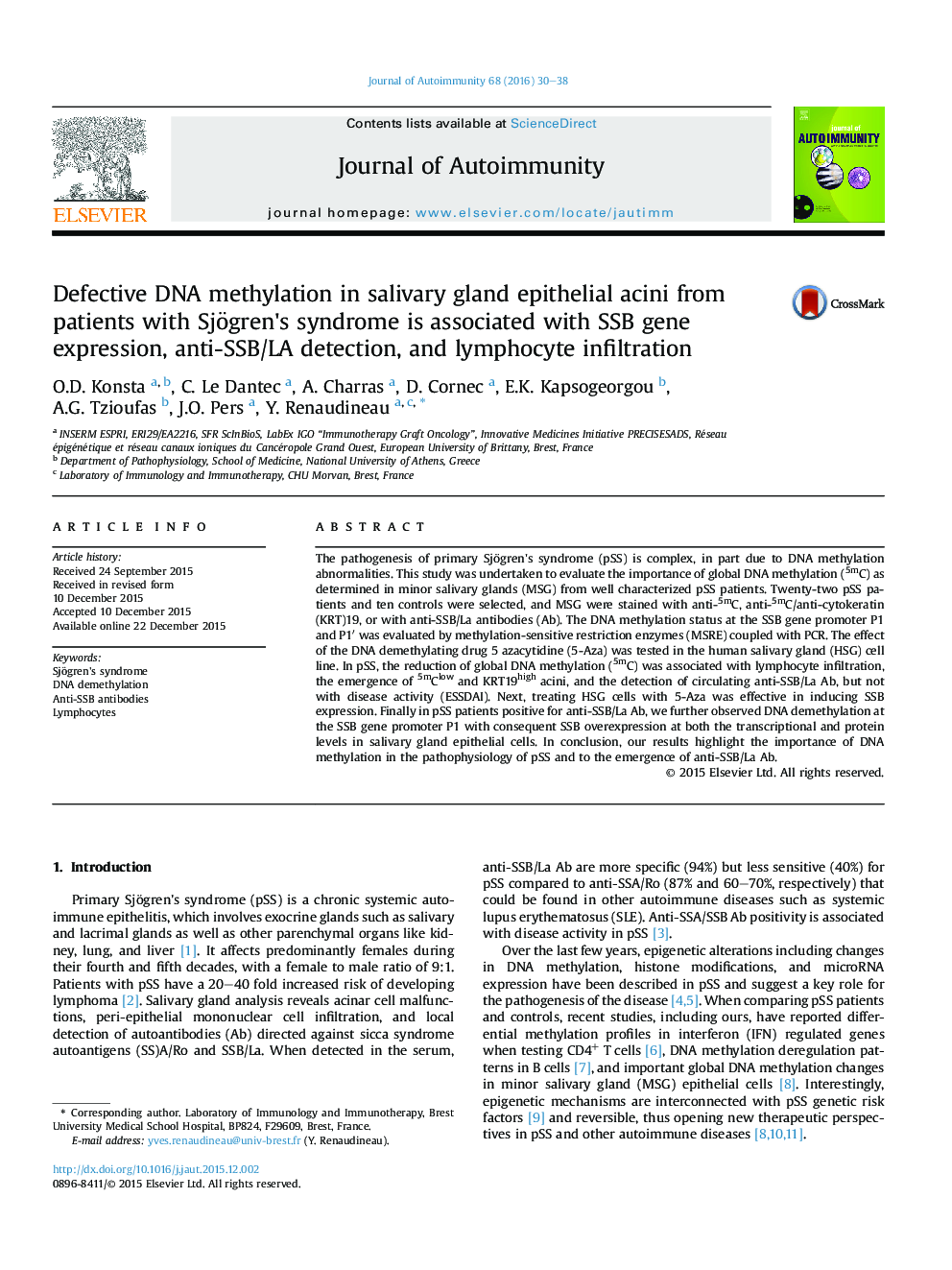| Article ID | Journal | Published Year | Pages | File Type |
|---|---|---|---|---|
| 6119122 | Journal of Autoimmunity | 2016 | 9 Pages |
Abstract
The pathogenesis of primary Sjögren's syndrome (pSS) is complex, in part due to DNA methylation abnormalities. This study was undertaken to evaluate the importance of global DNA methylation (5mC) as determined in minor salivary glands (MSG) from well characterized pSS patients. Twenty-two pSS patients and ten controls were selected, and MSG were stained with anti-5mC, anti-5mC/anti-cytokeratin (KRT)19, or with anti-SSB/La antibodies (Ab). The DNA methylation status at the SSB gene promoter P1 and P1â² was evaluated by methylation-sensitive restriction enzymes (MSRE) coupled with PCR. The effect of the DNA demethylating drug 5 azacytidine (5-Aza) was tested in the human salivary gland (HSG) cell line. In pSS, the reduction of global DNA methylation (5mC) was associated with lymphocyte infiltration, the emergence of 5mClow and KRT19high acini, and the detection of circulating anti-SSB/La Ab, but not with disease activity (ESSDAI). Next, treating HSG cells with 5-Aza was effective in inducing SSB expression. Finally in pSS patients positive for anti-SSB/La Ab, we further observed DNA demethylation at the SSB gene promoter P1 with consequent SSB overexpression at both the transcriptional and protein levels in salivary gland epithelial cells. In conclusion, our results highlight the importance of DNA methylation in the pathophysiology of pSS and to the emergence of anti-SSB/La Ab.
Related Topics
Life Sciences
Immunology and Microbiology
Immunology
Authors
O.D. Konsta, C. Le Dantec, A. Charras, D. Cornec, E.K. Kapsogeorgou, A.G. Tzioufas, J.O. Pers, Y. Renaudineau,
